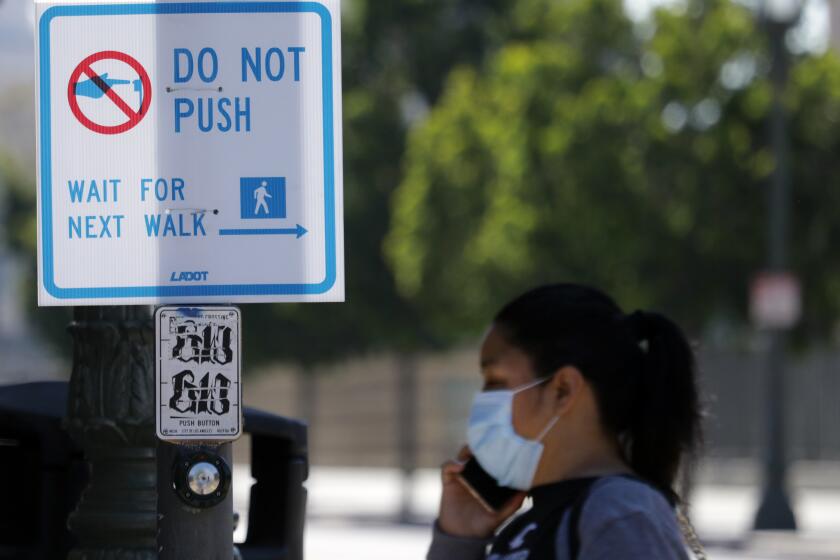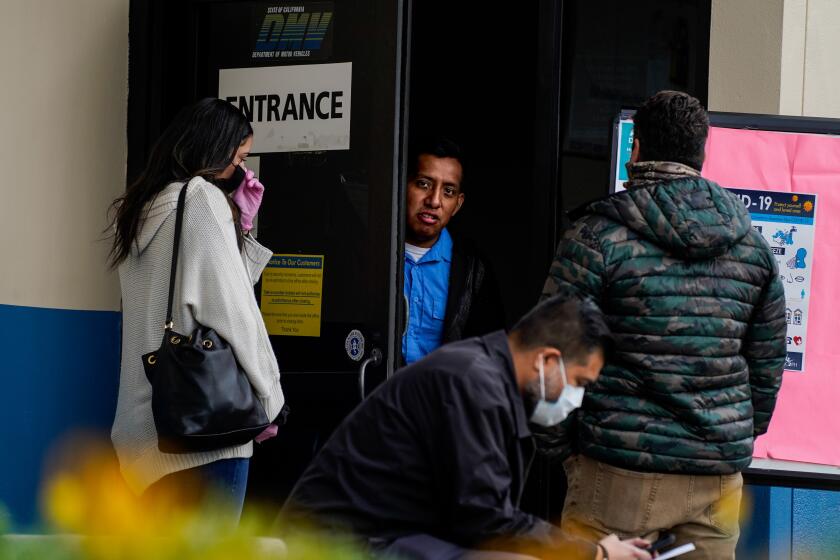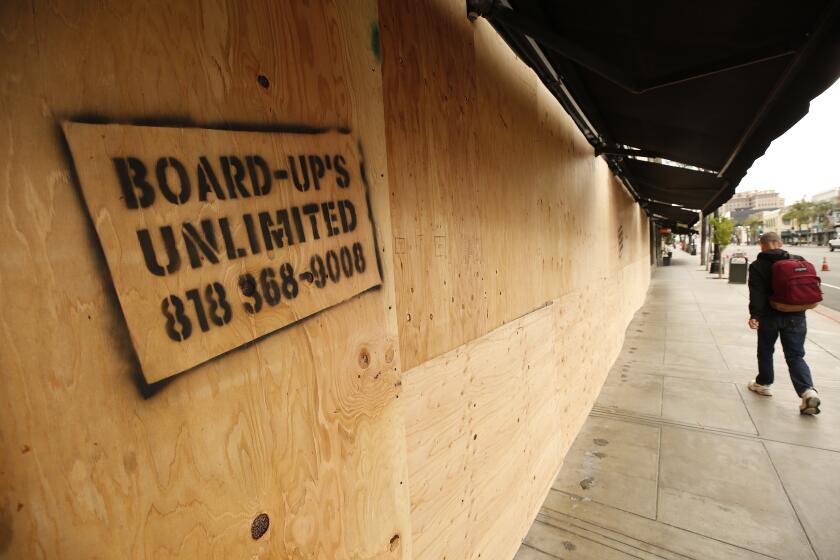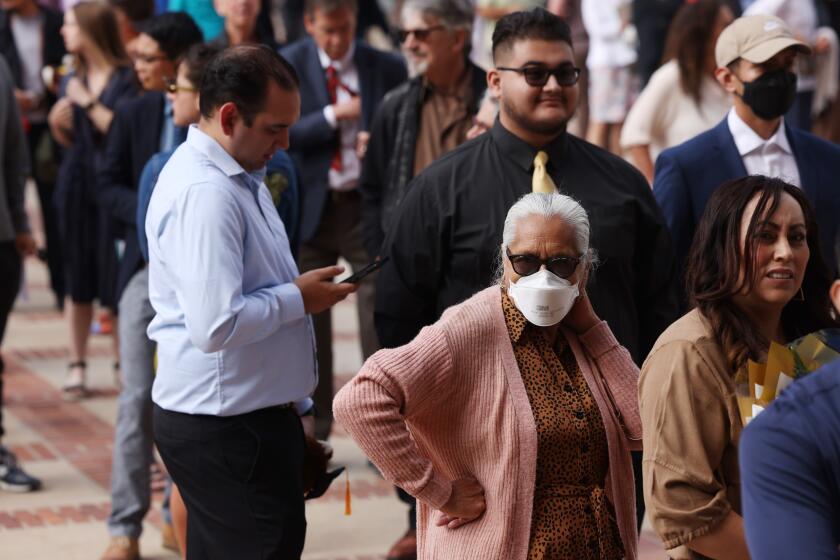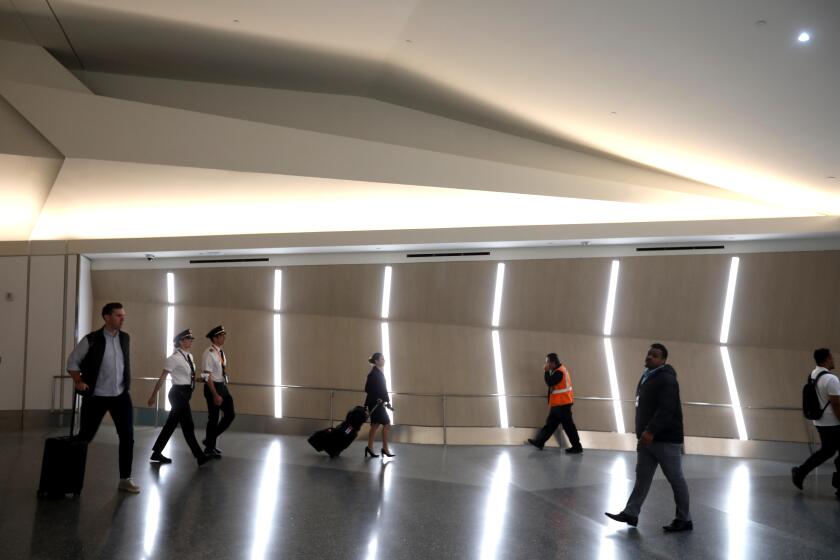L.A. was already facing financial troubles. Then came the coronavirus outbreak
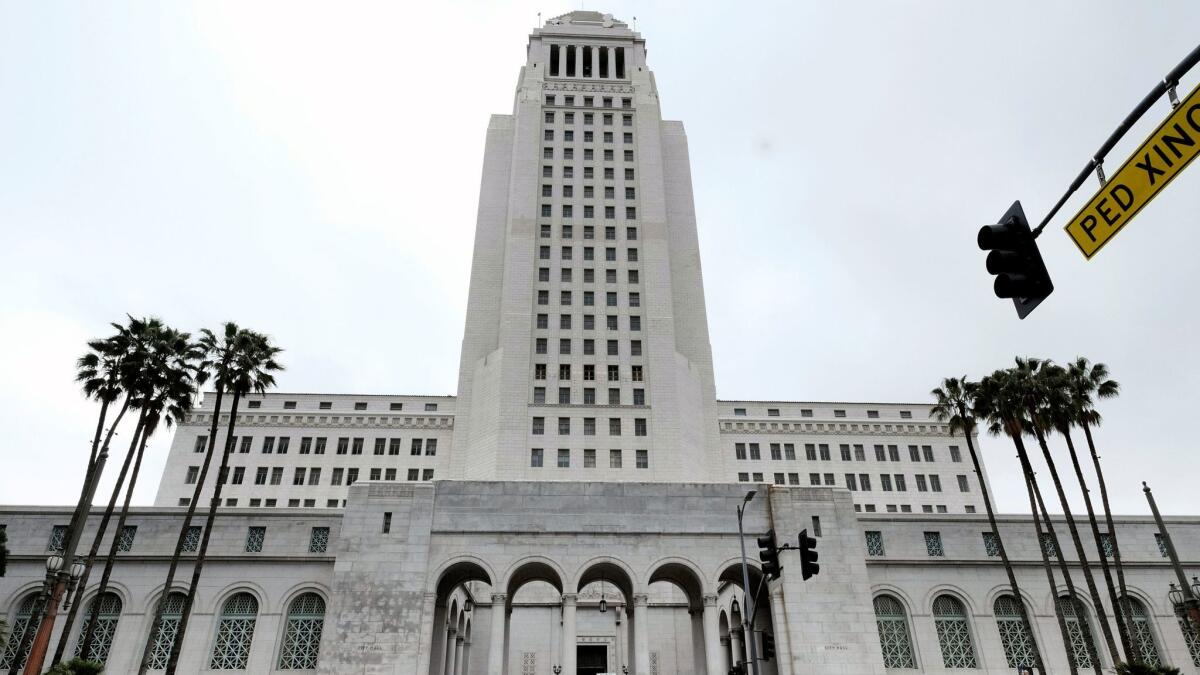
Even before the arrival of the coronavirus outbreak, Los Angeles city leaders had been facing a budget crunch, in large part because of new pay raises and increased benefits for the city workforce.
Now, the shutdowns triggered by a global health crisis have unleashed a new and potentially more dire financial threat, endangering the city’s ability to maintain existing public services.
Mayor Eric Garcetti, who is preparing to release his proposed 2020-21 budget next week, has begun looking at the possibility of pay cuts and furloughs for city workers who don’t work in the police and fire departments, one city official said. During his coronavirus briefing Wednesday, the mayor said he and the city’s budget analysts are working to protect as many core services as possible.
Here’s an inside look with doctors and nurses on the frontlines of the COVID-19 battle.
“But make no mistake,” he added. “There will be big cuts.”
Garcetti’s remarks stand in sharp contrast to the triumphal tone from city politicians about the budget in recent years, as a booming economy allowed them to boost funding to combat homelessness, fix more streets and sidewalks and support generous labor agreements.
Buoyed by low unemployment, new construction and increased tourism, the city saw year-over-year growth in the money that flows into its general fund, which pays for such basic services as police officers, firefighters and paramedics. That money comes in part from taxes on hotel stays, sales of consumer goods and property sales.
The latest economic downturn represents the biggest financial challenge to the city since the Great Recession, when elected officials chose to lay off hundreds of employees and eliminate thousands of jobs. It took several years for city leaders to restore services reduced during that crisis.
On Wednesday, City Controller Ron Galperin warned that revenues for the coming budget year could be as much as $600 million below previous projections. And that is not the only challenge facing city leaders.
L.A. is facing rising costs from both the packages of employee raises and new efforts to assist the city’s homeless population, Galperin said. Meanwhile, any major decline in the stock market could force the city to put a greater share of taxpayer funds into city employee retirement benefits.
The Los Angeles Times will provide around-the-clock updates on COVID-19 from across Southern California and around the world.Tracking the coronavirus in California: latest numbers | Support our journalism with a subscriptionHave a question about coronavirus? Send us your questions here. | You also can sign up for our newsletterSee latest photo galleryCoronavirus updates for April 15 are here
“That means less money available for city services,” he said.
Galperin’s projections for the coming year rely on a wide range of scenarios, depending on when the region emerges from the crisis. Because the future is so uncertain, some have questioned the city’s ability to lay out accurate spending and revenue projections.
“No city or business can budget right now because you just don’t know when this will end,” said Stuart Waldman, president of the Valley Industry and Commerce Assn., a business organization based in the San Fernando Valley.
The city hired consulting firm Beacon Economics last month to evaluate the size of the drop-off in revenue. Some departments have already begun sharing their findings with The Times.
As part of Garcetti’s $10.6-billion budget plan for 2019-20, the city anticipated bringing in $300 million in hotel taxes this fiscal year, assuming there would be an occupancy rate of 90%. But in mid-March, the occupancy rate was less than 30%, according to STR Global, a hotel data tracking firm.
The Los Angeles Zoo will lose an estimated $3.2 million following a five-week closure. And the Convention Center lost $2 million from the cancellation of North America’s largest gaming event, Electronic Entertainment Expo, or E3.
Employees of agencies including the DMV say that California has been slow to protect them and has deemed too many services as essential.
At least eight other events have also been scrapped, and it’s unclear when the Convention Center, which is now being used as a field medical facility, will hold large gatherings again.
Some smaller city departments also rely on funding streams that are in jeopardy. The city’s Cultural Affairs Department receives funding generated by hotel stays. And the city-owned El Pueblo de Los Angeles Historical Monument is helped by money from filming activity, which has largely come to a standstill.
One labor leader declined to directly address questions about the possibility of furloughs and pay cuts, saying instead that his workers have been “on the front lines of this epidemic” — many of them with minimal access to protective equipment.
Los Angeles County could see a $1-billion decline in sales tax revenue this fiscal year, which ends June 30, because of the massive economic impact of the coronavirus outbreak.
“We expect city leaders to not forget our members’ heroic role in this pandemic, and to remember that public workers have been the ones stepping up and keeping our city safe and functioning during this crisis,” said Bob Schoonover, president of Service Employees International Union Local 721, which represents such workers as custodians, tree trimmers and sanitation workers.
In a forecast released this month, UCLA economists said the state’s unemployment rate may peak at 16.4% in the second quarter of this year and could reach 8.5% two years from now. That would be more than twice as high as February’s 3.9% unemployment rate.
“A sharp contraction in income and taxable sales will cause increased stress for state and local government at a time when the demands on them are increasing,” the forecast advised.
Even without the health crisis, the city had been looking at the prospect of yearly budget shortfalls of $200 million to $400 million in the wake of employee pay raises — or between 3% and 6% of the general fund. City Administrative Officer Rich Llewellyn, who helps prepare the city budget, warned last fall that the cost of those more expensive salary agreements would turn projected budget surpluses into deficits.
One Fire Department union said in a bulletin to its members last year that they were getting raises of more than 15% over three years. Llewellyn told The Times the raises are closer to 10%, not including special wage adjustments and bonuses.
City Councilman Paul Krekorian, who heads the committee that oversees the budget, said he is worried about the loss of revenues in the coming year. However, he said he is comforted by the size of the city’s reserve funds, which stand at about $500 million and can be tapped in an emergency.
City leaders have already authorized $20 million from those reserves, money that’s helping pay for masks, hand sanitizer and healthcare staff for homeless shelters. Politicians are counting on federal money to help ease the city’s unexpected spending on efforts to contain the COVID-19 outbreak, but it’s far from clear how much will be offered.
Christopher Thornberg, founding partner of Beacon Economics, the company hired to assess the city’s finances, said the economic fallout from the pandemic will be deep but short-lasting. He dismissed comparisons to the Great Recession, saying he expects city revenues will start to return in the first half of 2021.
Thornberg also noted the city was already spending more than it took in before the pandemic.
“They weren’t exactly on good fiscal ground in the first place,” Thornberg said.
More to Read
Start your day right
Sign up for Essential California for news, features and recommendations from the L.A. Times and beyond in your inbox six days a week.
You may occasionally receive promotional content from the Los Angeles Times.

